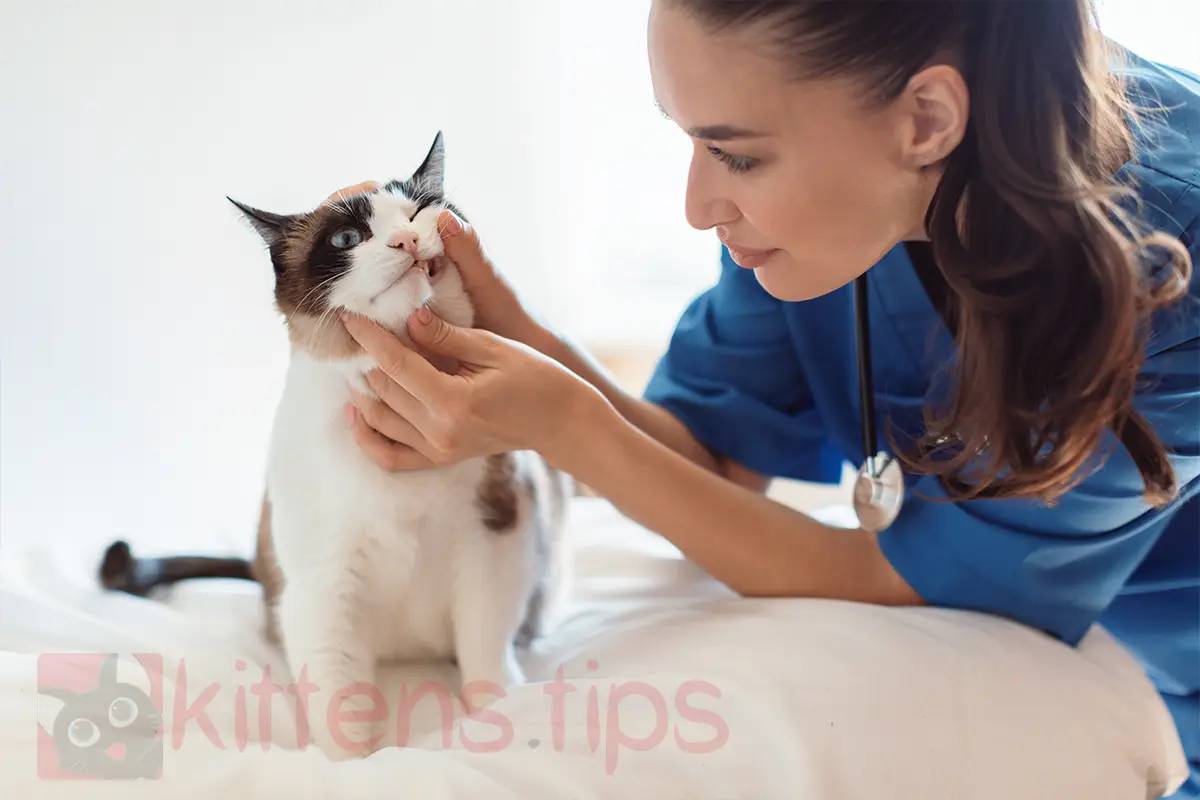Stomatitis in cats refers to the inflammation of the oral mucosa, characterized by redness, pain, and loss of normal functions. It is often a chronic condition that begins in the gums and gradually extends to other areas of the oral mucosa, also known as chronic feline gingivostomatitis, indicating long-term inflammation of the gums and mouth.
This condition often affects the caudal oral mucosa (the back part of the mouth, behind premolars and molars) and may involve pharyngitis, characterized by inflammation of the pharynx. All these conditions cause discomfort to the cat, manifested by symptoms such as painful swallowing, bad breath, inflamed and bleeding gums, food refusal, and weight loss.
Causes of Stomatitis in Cats
Various causes can lead to stomatitis in cats. When the oral mucosa comes into contact with numerous irritating substances, potential allergens, and abrasive objects from food or toys, it can trigger inflammation of the oral mucosa. Factors such as a weakened immune response, overactive immune system, or poor dental hygiene can also influence the progression of the disease.
Bacterial and viral infections, including feline calicivirus (FCV) and feline herpesvirus (FHV), are often associated with stomatitis. Additionally, immune diseases, physical irritations, metabolic issues, and compromised immune system function can contribute to the development of this condition.
Symptoms of Stomatitis in Cats
The symptoms of stomatitis in cats are varied and can significantly impact the well-being of the pet.
Key clinical manifestations include:
Bad Breath (Halitosis): Cats with stomatitis may have an unpleasant breath odor, often associated with mouth infections.
Difficulty Eating (Dysphagia): Pain during swallowing can lead to difficulties in the feeding process, with possible food refusals.
Reduced Appetite: Stomatitis can negatively influence the cat’s appetite, resulting in reduced appetite or total food refusal.
Excessive Salivation: Affected cats may exhibit excessive salivation, manifested by excessive wetting of the mouth.
Mouth Bleeding: Mucosal inflammation can cause gingival bleeding, and blood may be visible in saliva or on the cat’s food. This may indicate stomatitis in cats, but there could be other causes.
Pawing at the Mouth: In an attempt to alleviate oral pain, some cats may paw at their mouth or frequently rub the affected area with their front paws.
Oral Pain (During Examination): Signs of pain can be observed during a mouth examination, and the cat may react negatively to touch.
Weight Loss: Due to difficulties in feeding and reduced appetite, cats with stomatitis may experience significant weight loss.
Untidy Appearance: Because of discomfort and pain, affected cats may neglect their personal hygiene, presenting an untidy appearance and sometimes matted fur.
Red, Swollen, and Painful Appearance of Oral Tissue: During a mouth examination, the mucosa lining the oral cavity will exhibit a red color, swelling, and pain. Possible ulcers may appear on this affected surface.
Inflammation of Submandibular Lymph Nodes (Lymphadenopathy): These lymph nodes may become inflamed in response to infection and inflammation in the mouth area.
While stomatitis is more common in older cats, certain breeds such as Maine Coon, Siamese, Persian, or Abyssinian can develop juvenile stomatitis, affecting individuals under 3 years old.
Related:
- Periodontal Disease in Cats: Causes, Symptoms, and Treatment
- Gingivitis in Cats: Causes, Symptoms, and Treatment
- Dental Resorption in Cats
- Why does a cat’s mouth smells bad? Causes and Treatment.
Treatment of Stomatitis in Cats
The treatment of stomatitis in cats often involves the administration of antibiotics or antifungals, regular oral hygiene, special diets, and, in severe cases, the extraction of affected teeth. For accurate diagnosis and an appropriate treatment plan, it is crucial that your cat is examined by a veterinarian. Stomatitis in cats should not be ignored, as this condition can lead to serious complications and affect the overall health of the cat.
The treatment for stomatitis in cats is often similar to that for gingivitis and involves several aspects.
Medication Administration: In the case of bacterial or viral infections, prescribed medications such as antibiotics or antivirals by the veterinarian can be essential. These help combat pathogens and reduce inflammation.
Rigorous Oral Hygiene: Regular dental brushing is crucial for managing stomatitis. Cats may be prone to bacterial plaque formation, and poor dental hygiene can worsen the condition. Oral hygiene products, such as special toothpaste for cats, may be recommended.
Tooth Extraction: In severe cases, especially when inflammation persists and significantly affects the gums, extraction of affected teeth may be necessary. This can eliminate infection foci and associated discomfort.
Special Diet: A special diet, such as wet food or soft-textured food, may be recommended to facilitate the cat’s feeding and reduce mouth irritation.
Anti-inflammatory Treatment: Anti-inflammatory medications, such as corticosteroids, may be prescribed to reduce inflammation and alleviate pain. These may be administered as injections or oral medications.
Monitoring and Ongoing Care: Stomatitis can be a chronic condition, and continuous monitoring of the cat’s health is essential. Regular visits to the veterinarian for examinations and adjustments to the treatment are important for maintaining the cat’s quality of life.
Stomatitis in cats can pose a challenge for both the animal and the owner. With proper management, medical treatment, and regular monitoring, the quality of life for the cat can be improved. It is important to work together with the veterinarian to establish a personalized treatment plan and ensure a healthy and happy life for your pet.
